Contents
Guide
Includes 40 Strategies for Making Anxiety Work for You
Good Anxiety
Harnessing the Power of the Most Misunderstood Emotion
Dr. Wendy Suzuki
with Billie Fitzpatrick

An Imprint of Simon & Schuster, Inc.
1230 Avenue of the Americas
New York, NY 10020
www.SimonandSchuster.com
Copyright 2021 by Wendy Suzuki, PhD
All rights reserved, including the right to reproduce this book or portions thereof in any form whatsoever. For information, address Atria Books Subsidiary Rights Department, 1230 Avenue of the Americas, New York, NY 10020.
First Atria Books hardcover edition September 2021
 and colophon are trademarks of Simon & Schuster, Inc.
and colophon are trademarks of Simon & Schuster, Inc.
For information about special discounts for bulk purchases, please contact Simon & Schuster Special Sales at 1-866-506-1949 or .
The Simon & Schuster Speakers Bureau can bring authors to your live event. For more information or to book an event, contact the Simon & Schuster Speakers Bureau at 1-866-248-3049 or visit our website at www.simonspeakers.com.
Interior design by Erika R. Genova
Jacket design by Emily Mahon
Author photograph by Matt Simpkins Photography
Library of Congress Cataloging-in-Publication Data is available.
ISBN 978-1-9821-7073-8
ISBN 978-1-9821-7075-2 (ebook)
Medical Disclaimer
This publication contains the opinions and ideas of its author. It is intended to provide helpful and informative material on the subjects addressed in the publication. It is sold with the understanding that the author and publisher are not engaged in rendering medical, health, or any other kind of personal professional services in the book. The reader should consult his or her medical, health, or other competent professional before adopt-ing any of the suggestions in this book or drawing inferences from it.
The author and publisher specifically disclaim all responsibility for any liability, loss, or risk, personal or otherwise, that is incurred as a consequence, directly or indirectly, of the use and application of any of the contents of this book.
Some names and identifying characteristics have been changed.
In loving memory of my father, Mikio Suzuki, and my brother, David Koshi Suzuki. Thank you. I miss you. I love you.
INTRODUCTION
W e live in an age of anxiety. Like an omnipresent, noxious odor weve grown used to, anxiety has become a constant condition, a fact of life on this planet. From global pandemics to crashing economies, to intense, daily family challenges, we all have plenty of justifiable reasons to feel anxious. The relentless twenty-four-hour news cycle and the constant stream of social media just add to this unease; we are surrounded by too much information to filter and too much stimulation to relax. The stress of daily living seems inescapable. Is feeling anxious inevitable?
Yes but not in the way we usually think about it.
My early days of investigating and writing on this subject began in my lab as a neuroscientist at New York University. At the time, I never really thought of myself as an anxious person. That is, until I started to notice the words used by my subjects, friends, lab members, colleagues, and even myself to describe how we were all feeling:
worried
on edge
stressed out
distracted
bored
pessimistic
unmotivated
nervous
ready to snap
defensive
frightened
unable to sleep
Sound familiar?
A simple Google search shows that 18 percent of the American populationabout 40 million peoplesuffer from one of several anxiety disorders, including panic disorder, PTSD, and generalized anxiety disorder (GAD). And yet, the numbers represented by these formal diagnoses are a mere scratch on the surface of anxietys real population impact. Hundreds of millions more across the globe suffer from lower-grade, nonclinical yet persistently draining anxietythe garden-variety type that pretty much all of us experience at one time or another. You know those worries that keep you awake at night even though youre exhausted? Or the continual to-do list that makes you feel like you are never able to fully take a break? Perhaps feeling so distracted that you cant sustain your attention long enough to read a full magazine article, never mind think through a problem? Have you ever experienced a sense of detachment that prevents you from connecting with family and friends the way youd like to? You may be familiar with one or all of these signs of what I call everyday anxiety. Yes, anxiety has many ways of showing up in our lives. And even if you dont feel anxious, you may still agree that modern living is almost always stressful.
Recent estimates suggest that anxiety shows up in our lives and affects a reported 90 percent of the populationa truly astounding number of people, me included, who often resign themselves to the idea that we have no other option than to accept that anxietyin whatever shape it takeswill be more or less a constant fixture in our lives, draining energy and causing unhappiness, negative body image, decreased sex drive, and difficulty truly connecting with our friends and loved ones. Perhaps we may go through good spells, where anxiety seems to disappear for a spate of time, but sooner than later, we end up feeling once again caught up in fears, worries, and an endless what-if list of concerns.
And because these symptoms are not considered severe or disabling, everyday anxiety often goes untreatedeven though its side effects are enormously disruptive to our daily lives and relationships, our ability to get work done, our capacity to experience pleasure and enjoy ourselves, and our willingness to take on new, interesting projects, causes, or changes. Everyday anxiety can be a life-robber.
Too many of us accept these stressors as an unavoidable part of life. In fact, continual nervousness, sleeplessness, distraction, and dread seem like the appropriate response to the world were living in. Indeed, some may not experience anxiety as something inside of them but think of it as part of the overall stress that exists outside them, as if its a thundercloud they can get caught under if they dont run for cover fast enough.
When I first got interested in anxiety, I wanted to apply my groundbreaking research on movement and the brain (the subject of my first book) to help people manage anxiety more effectively. I aimed to address the anxiety crisis I saw all around mearound the NYU campus where I teach, in our high schools where I also do some of my research, among my talented and hardworking friends and colleagues, and what I had been observing throughout my travels around the world that reflected the statistics I was reading about. I believed, and my own research confirmed, that exercise, proper nutrition, and meditation could reduce and buffer against anxiety. But what I didnt appreciate at first was just how complex anxiety is; that if we simply approach it as something to avoid, get rid of, or dampen, we not only dont solve the problem but actually miss an opportunity to leverage the


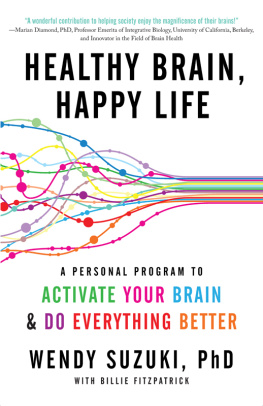
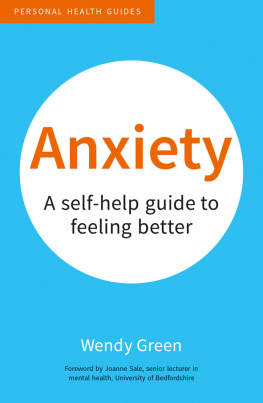

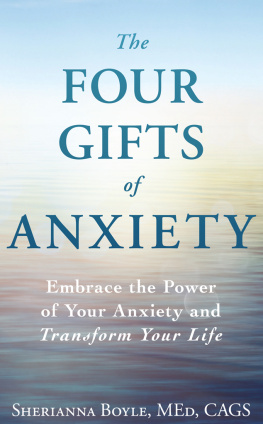
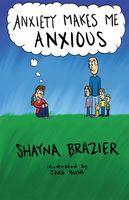
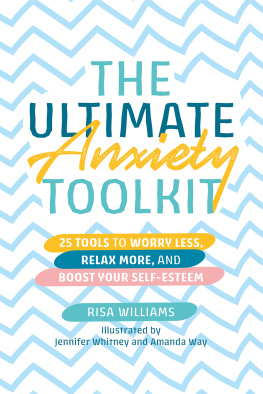
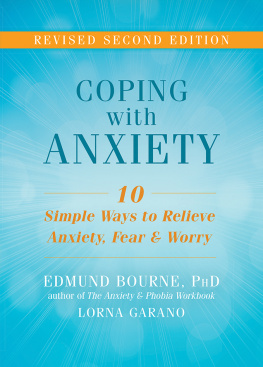

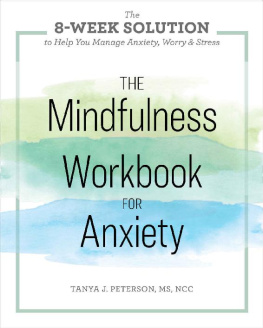
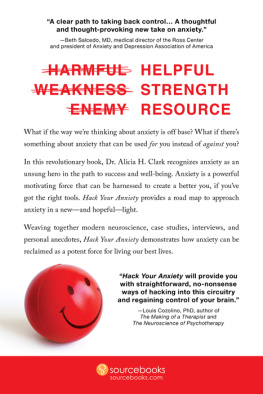

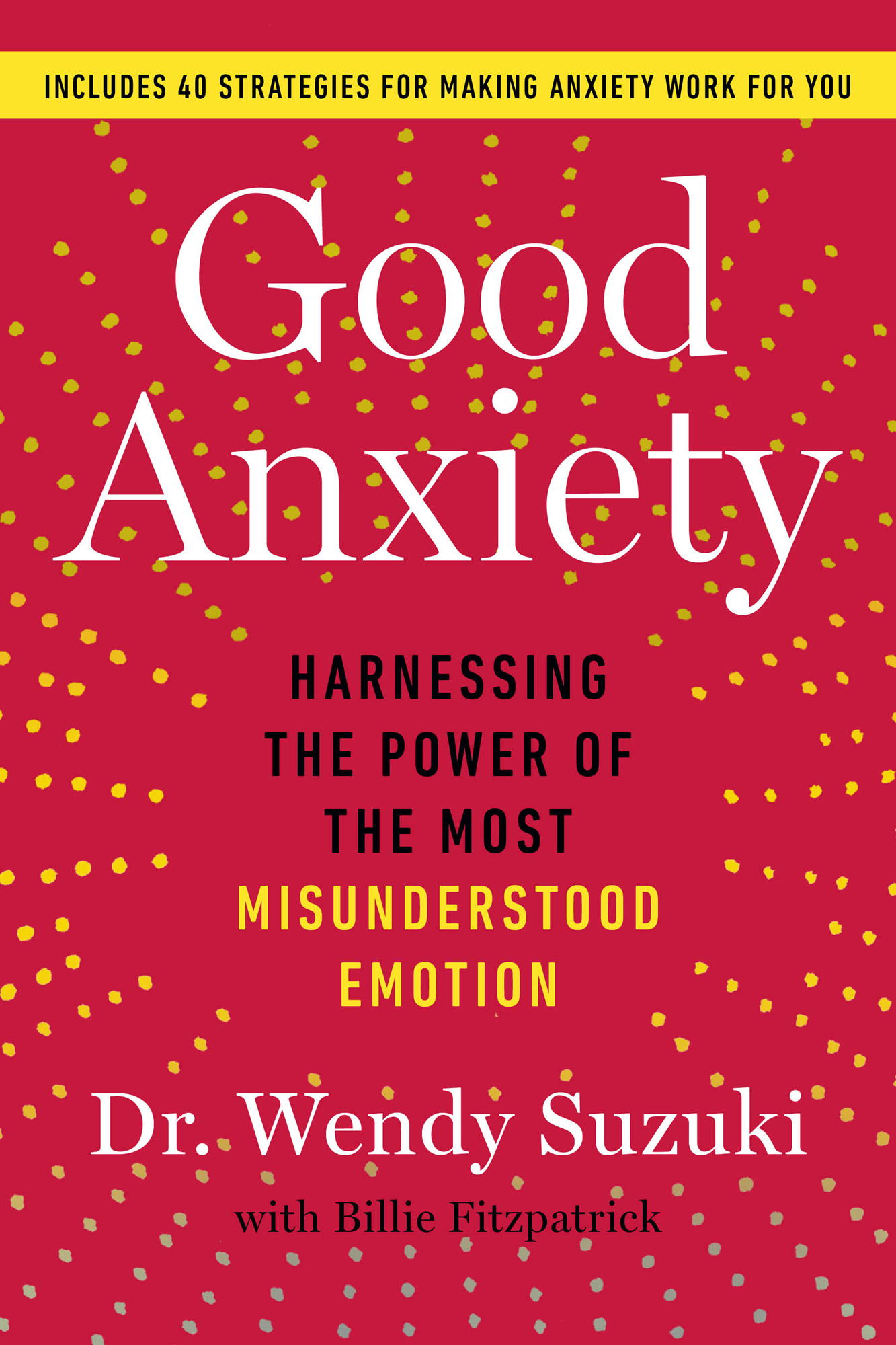


 and colophon are trademarks of Simon & Schuster, Inc.
and colophon are trademarks of Simon & Schuster, Inc.